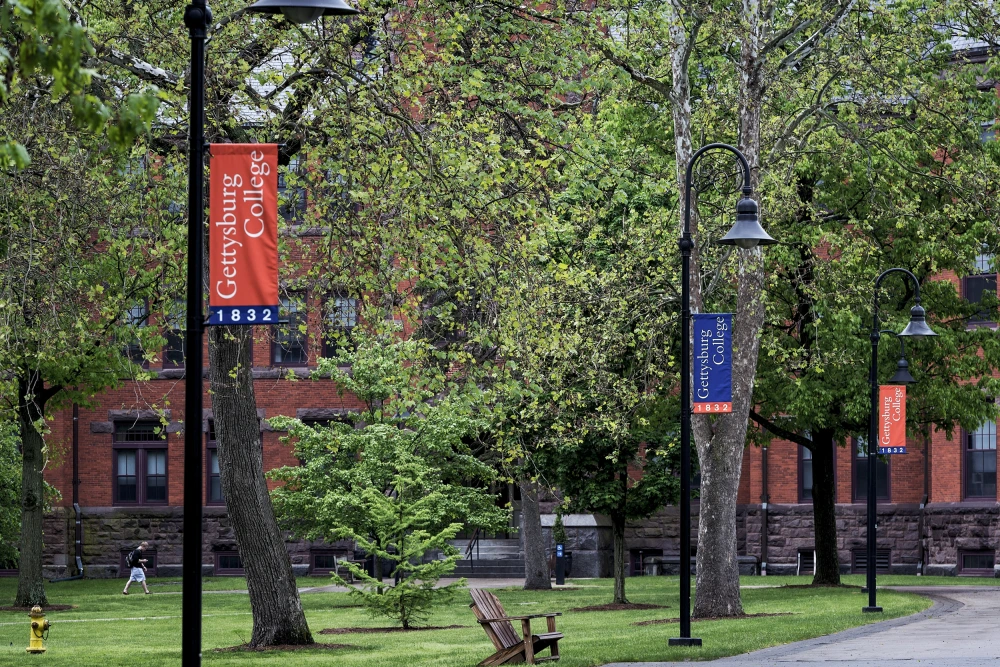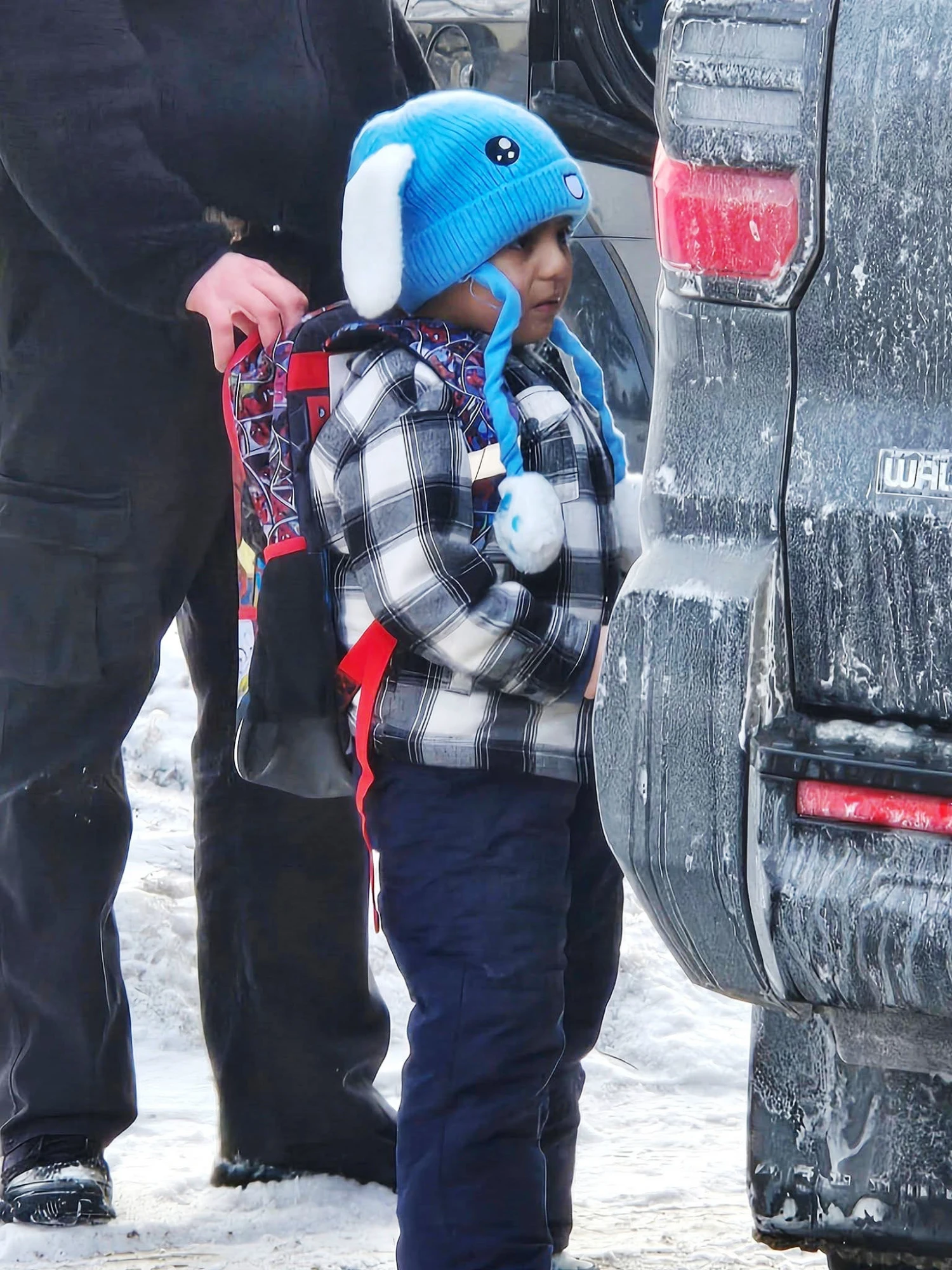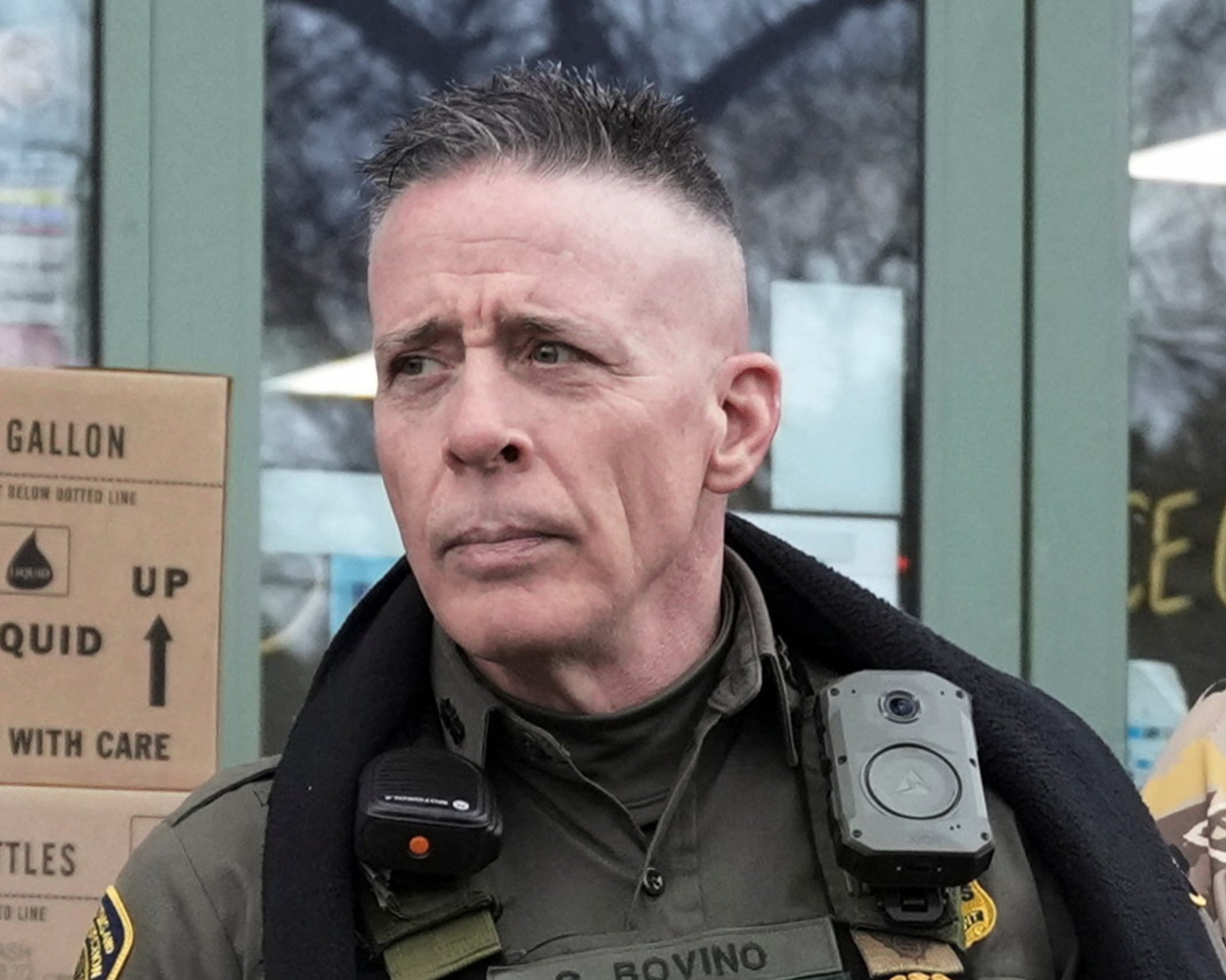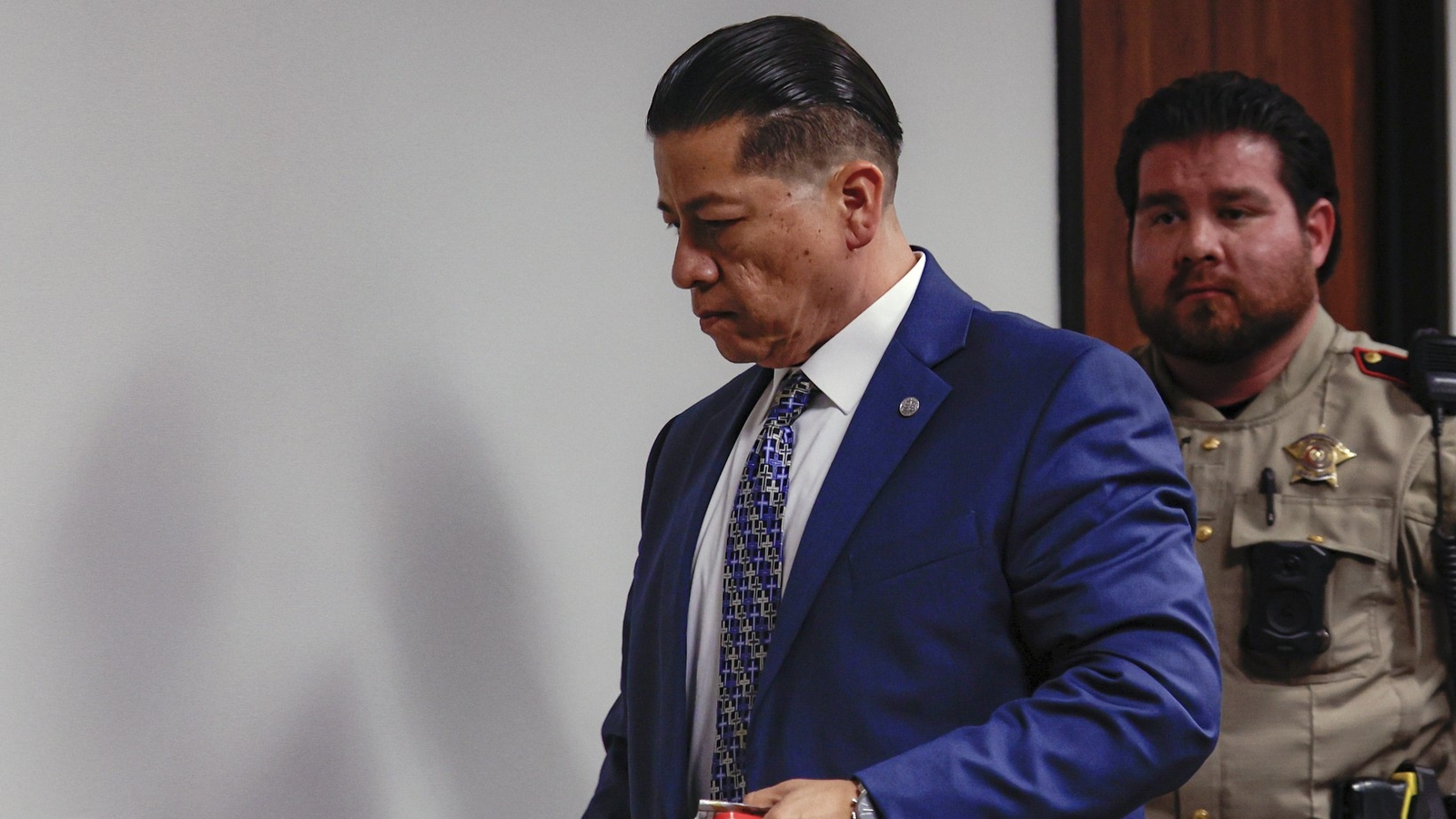An unidentified Gettysburg College student accused of carving a racial epithet on the chest of a teammate is no longer enrolled at the Pennsylvania liberal arts college, the school said over the weekend.
“We can report now that the individual who scratched a slur onto another person is no longer enrolled at the College,” the private college said Sunday in a joint statement with the family of the victim, announcing its investigation of the on-campus incident, which happened at a gathering of men’s swim team members on Sept. 6.
The incident was first reported Wednesday by the student publication The Gettysburgian. A spokesperson for the college confirmed it, saying the accused and the victim were suspended from the swim team pending the outcome of an investigation.
The next day, college President Bob Iuliano decried the racist incident a letter to the campus community.
“There is no place on this campus for words or actions that demean, degrade, or marginalize based on one’s identity and history,” Iuliano wrote.
The victim’s family said in a statement The Gettysburgian published Friday that the incident happened at an informal gathering of swim team members on campus, where the no-longer-enrolled student is alleged to have used a box cutter to carve the N-word into the victim’s chest.
The victim’s family said that he was the only person of color at the gathering and that the alleged perpetrator was a trusted friend of his. It used the word “etch” to describe the transgression, calling it a “hate crime.”
The family, which said it wanted to keep the victim’s and its own identity private, decried the incident, saying letters of complaints about discrimination, harassment and “lack of due process” have been sent to state and local NAACP organizations, as well as to the Pennsylvania Commission on Human Relations.
Those entities, as well as spokespeople for the U.S. Justice Department’s Civil Rights Division, didn’t immediately respond to requests for comment Monday night.
The family said it’s aware it has the option of pushing for criminal prosecution, though prosecutors are free to pursue an investigation and a possible case regardless of a third party’s participation.
It hasn’t been made clear why the victim was suspended. The family said in its statement that the student was “dismissed,” not suspended, from participation.
College spokesperson Jamie Yates indicated the school is limited in what it can say until the investigation is complete but noted that the family’s joint statement with the college Sunday says the two parties have agreed to ongoing “conversations … about how most constructively to move forward.”
The Division III men’s swim team appears to be accustomed to more provincial headlines, including stories this year about how seven members were named to the All-Centennial Conference team or how four members were named to the Division III Academic All-District team, qualified by 3.5 or higher grade-point averages.
The college removed the team roster amid national attention, fearing for the safety of the student-athletes suddenly exposed to the national news cycle, Yates said by email.
Iuliano, the college’s president, defended the team’s culture and leadership Monday, saying its captains should be praised for reporting the incident to coaches.
“The student conduct investigation affirmed that the incident is not a byproduct of an unhealthy athletic team culture or a reflection on the team itself; rather, we see in the captains the measure of what it means to be a Gettysburgian by their notification to their coaches,” he said in the message to the campus community.
Iuliano said he hopes the storied college — founded nearly three decades before the Civil War, which made the town of Gettysburg famous, by a man who would both decry slavery as a national “sin” and come to own slaves through marriage before he freed some when he moved north — could learn a lesson from this month’s events.
He said he has asked the college’s chief diversity officer to lead an inquiry that should conclude with “concrete actions” to prevent such a thing in the future.
“We know there are lessons to be learned — lessons that must take into account our collective history,” Iuliano wrote Monday. “We know that those lessons won’t reveal themselves on their own.”




